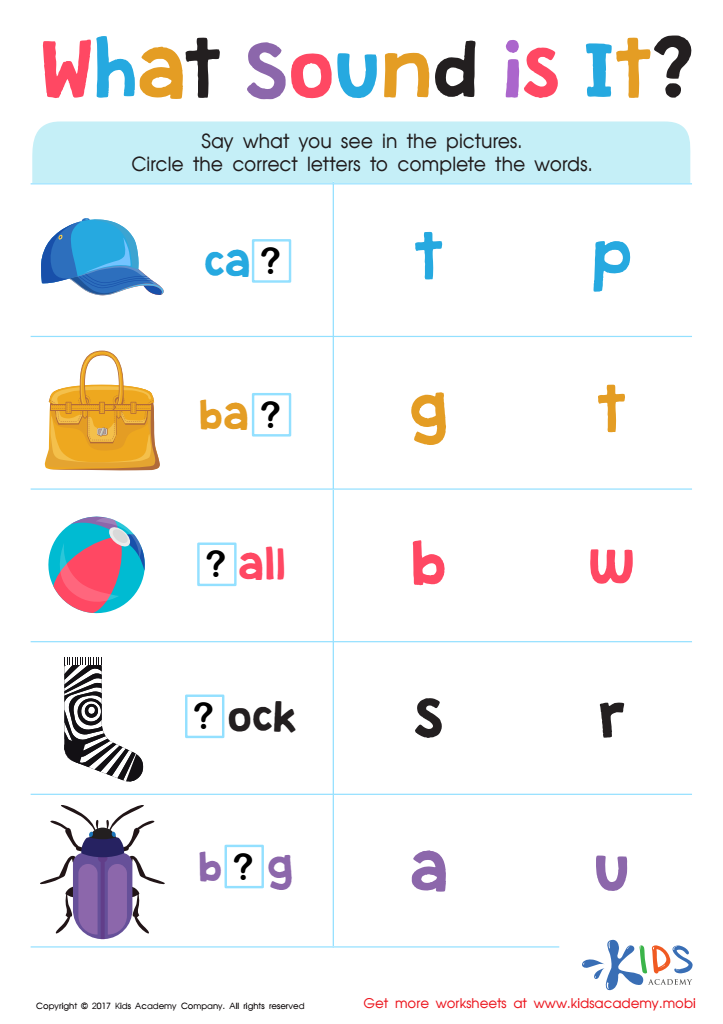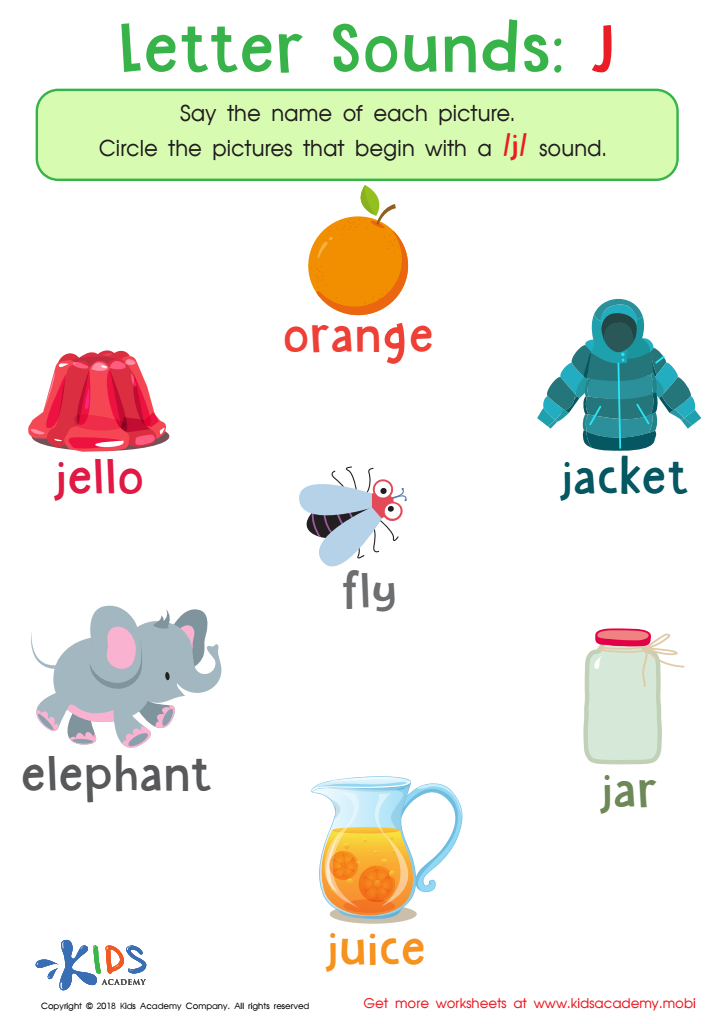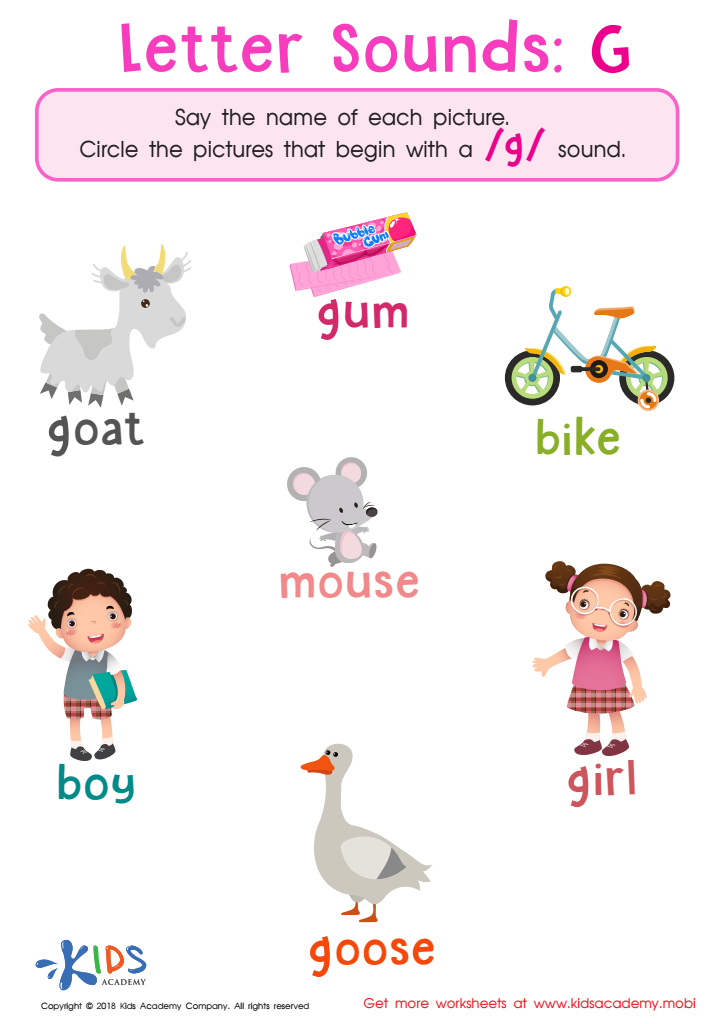Reading skills development Letter Sounds Worksheets for Ages 3-5
3 filtered results
-
From - To
Boost early literacy with our Reading Skills Development Letter Sounds Worksheets for ages 3-5! These engaging, age-appropriate activities are designed to teach young learners the foundational skills of reading through letter-sound recognition. Your child will learn to identify each letter and its corresponding sound with fun and interactive exercises. Perfectly crafted for preschoolers and kindergarteners, these printable worksheets will promote phonemic awareness, setting the stage for future reading success. Combining colorful illustrations with proven educational techniques, our worksheets make learning an enjoyable and rewarding experience. Help your child master letter sounds and unlock the world of reading today!


What Sound Is it? Worksheet


Letter Sounds: J Printable Worksheet


Letter G Sounds Worksheet
Reading skills development, particularly understanding letter sounds (phonemic awareness), is crucial for children aged 3-5 as it forms the foundation of literacy. This early stage is a critical period for brain development, where children's ability to recognize and process individual sounds in words significantly impacts their future reading and writing skills.
Firstly, letter sounds are the building blocks of words. When children learn that letters represent sounds and that these sounds combine to form words, they develop essential decoding skills. This ability to 'sound out' words fosters independence in reading and boosts confidence. Without this foundational skill, children may struggle with reading comprehension and fluency later in their academic journey.
Moreover, early phonemic awareness supports vocabulary growth and listening skills. By recognizing sounds, children become more attuned to the nuances of language, which enhances their ability to understand and engage with stories and instructions. This not only aids in academic success but also in effective communication and social interaction.
Finally, fostering reading skills at an early age cultivates a love for reading. Engaging activities around letter sounds, like singing alphabet songs or playing rhyming games, can make learning enjoyable and encourage children to become lifelong readers. Thus, parents and teachers play a vital role in nurturing early literacy, laying the groundwork for future educational achievement and personal growth.
 Assign to My Students
Assign to My Students















